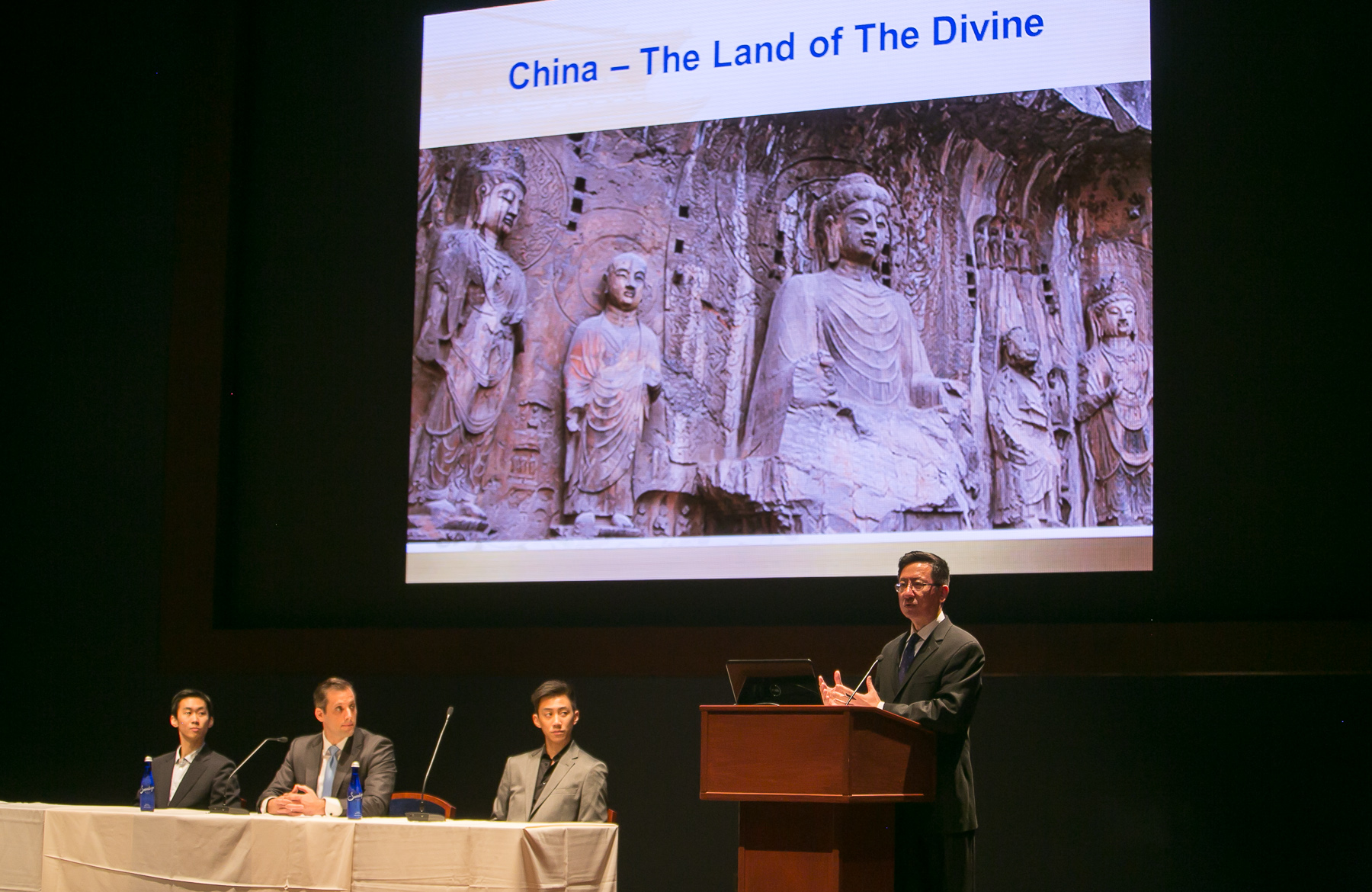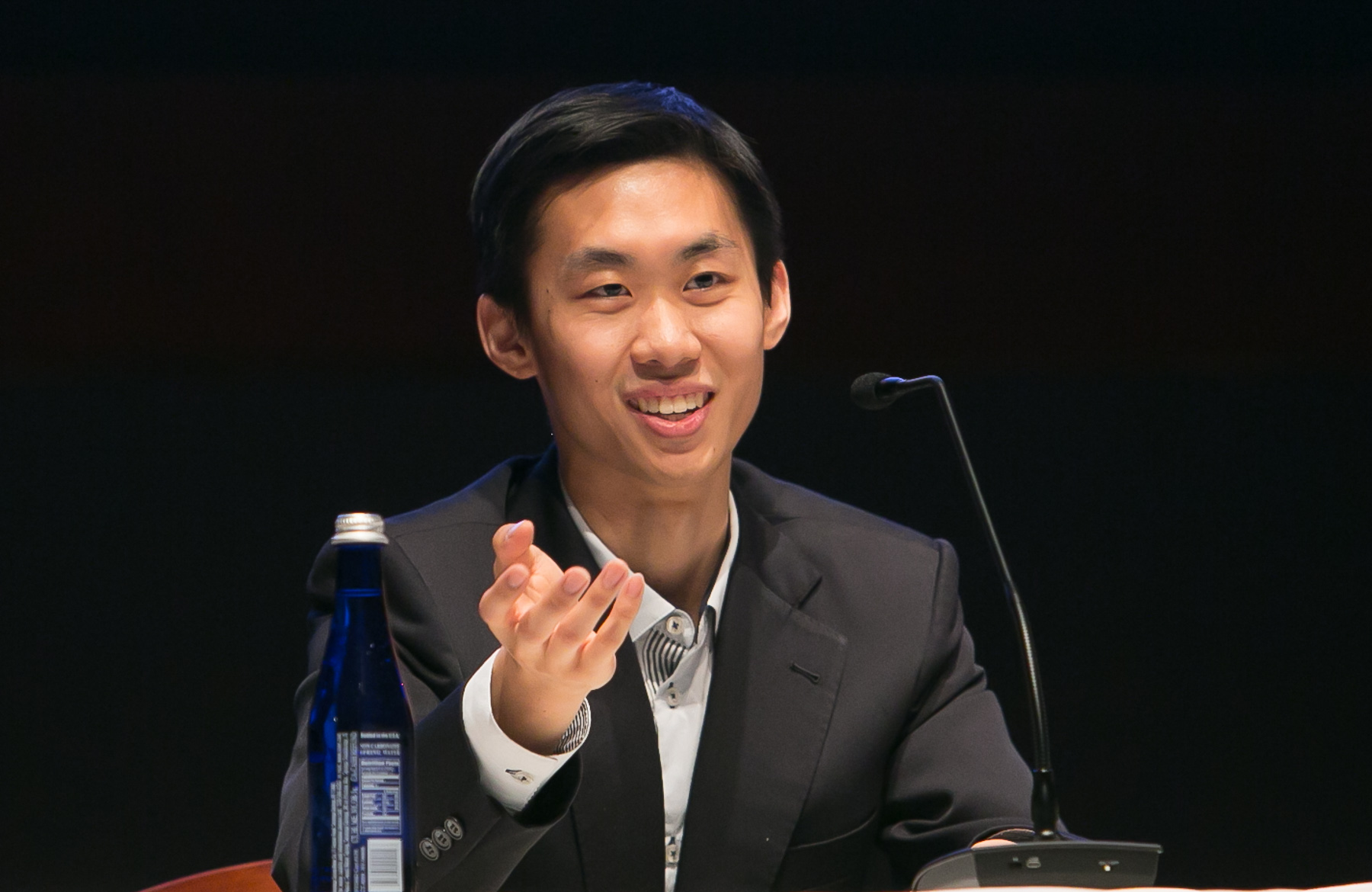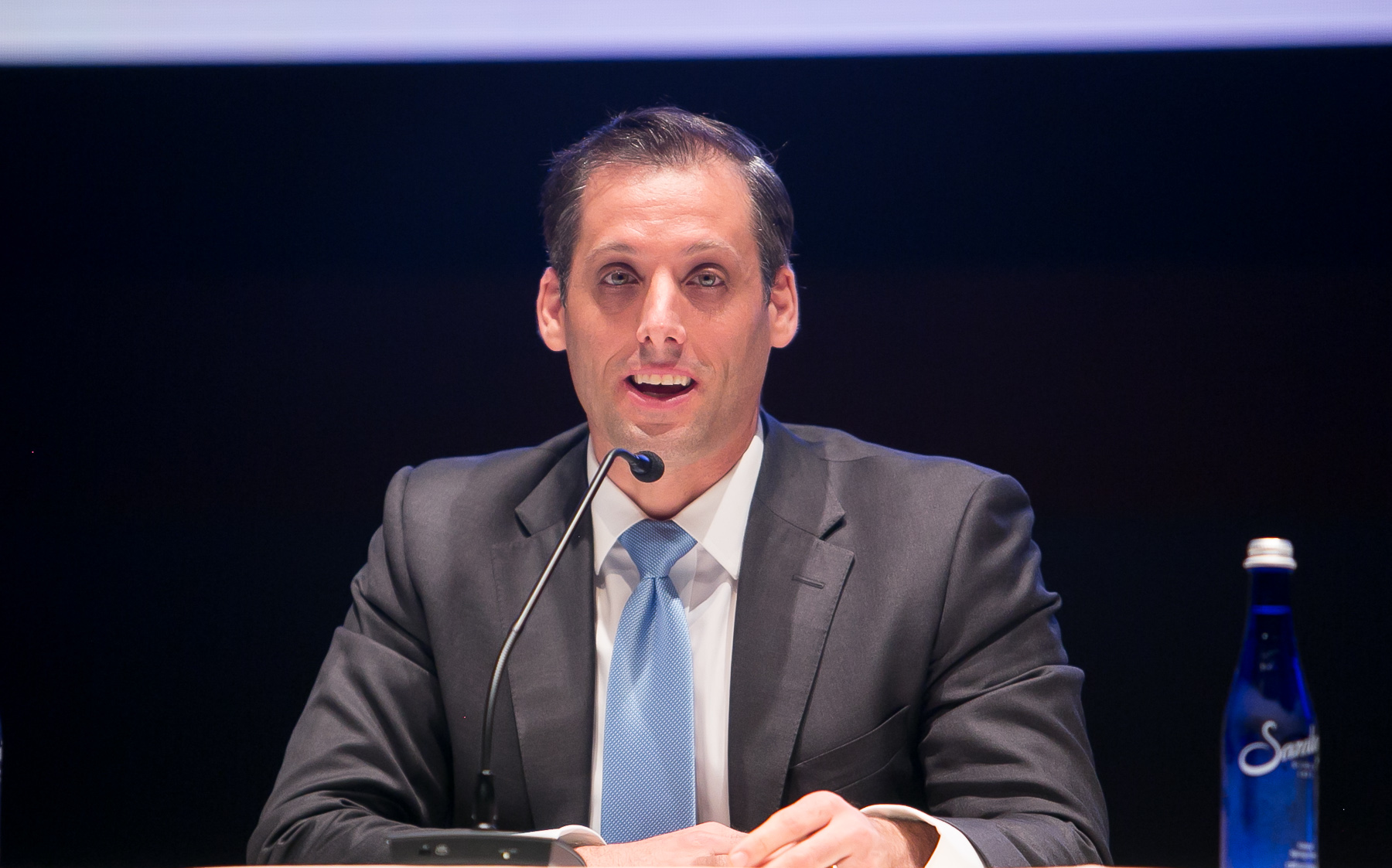It was a pleasant Sunday afternoon and a couple of us dancers decided to pay a visit to the park across our hotel. We took off our shoes and began to jump around and do some flips, easily attracting the attention of passersby. A mother and her two daughters approached us—the mother pointed at a nearby building and asked “El Rey Mono?†I nodded and replied, “We’re not performing anymore.†She smiled sadly, and said, “Such a shame.â€
El Rey Mono is Spanish for The Monkey King—the name of a Shen Yun dance production touring South America in 2015. Last weekend we were scheduled to perform two shows at the Casa de la Cultura Ecuatoriana in Quito, Ecuador. Unfortunately, due to pressure from the Chinese Communist Party (CCP), the theater management refused to let us perform and the shows were forcibly cancelled. So instead of warming up on stage, we were flipping on the grass behind the theater as scores of eager audience members were greeted with closed doors.
This is the second time I’ve witnessed a democratic country falling prey to the CCP’s intimidation. The first time was on February 2008 in Busan, South Korea, where our shows were suddenly cancelled—even though we were already in the country—due to pressure from the CCP. Similar antics occurred in Moldova on May 2010, when Shen Yun members who had arrived at the theatre were refused entry because the theater director had received threats from the Chinese Embassy.
But why is the CCP so intent on blocking our show? Most people would probably find it nonsensical and absurd. First, Shen Yun presents genuine traditional Chinese culture through world-class performances and has received critical acclaim around the world. Second, our particular show is a new dance production based on the classic Chinese novel Journey to the West. It is one of the four classics of Chinese literature and possibly the most popular novel of all time in the East.
Moreover, we had just completed shows in Mexico and Colombia, and the audience response was overwhelmingly enthusiastic. Not only did they thoroughly enjoy the adventures of Tang Monk and his three eccentric disciples, but they could also understand the deeper meanings, wisdom, and values being portrayed.
However, instead of supporting our efforts to promote Chinese culture internationally, the CCP threatens the countries that are planning to host Shen Yun performances. This is because the CCP promotes Chinese culture on the surface, while in reality it is systematically destroying it from its roots. (More details on this can be found here)
Personally, I find the situation saddening—not only because we were unable to perform, but more importantly because a democratic, independent country allowed itself to be controlled by a communist dictatorship. It is really a loss for everybody, including the Ecuadorian people, since they’ve been barred from getting to know true Chinese culture.
On our last day in Quito we visited the Old Town, where we encountered crowds of locals gathered at the main plaza as soldiers and government officials paraded down the narrow, congested streets. It was their national holiday—a day marking a historic battle fought against the Spanish that led to the country’s independence. I hope that they will truly exercise their independence and liberate themselves from the Chinese Communist Party, too.





